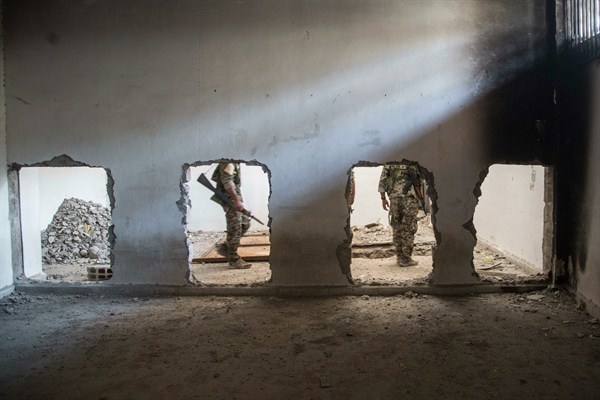This week’s attack against a Christmas market in Strasbourg, France, by a radicalized French Muslim illustrates that jihadis, or militant Islamists, still pose a serious threat to national security in the U.S. and Europe.
But since late 2013, jihadis have also become a threat to other jihadis, regularly killing each other on battlefields across the Middle East in numbers that have observers talking about a jihadi civil war. In Syria, armed rebels affiliated with al-Qaida and the so-called Islamic State continue to fight each other, while the most potent force battling the Islamic State’s affiliate in Afghanistan is the Taliban. To Western ears, this sounds like a good development. After all, our enemies are busy killing one another rather than turning their guns on us.
Though predictions that the jihadis might be headed toward self-destruction are overblown, the infighting does have a detrimental impact on the broader jihadi movement.

